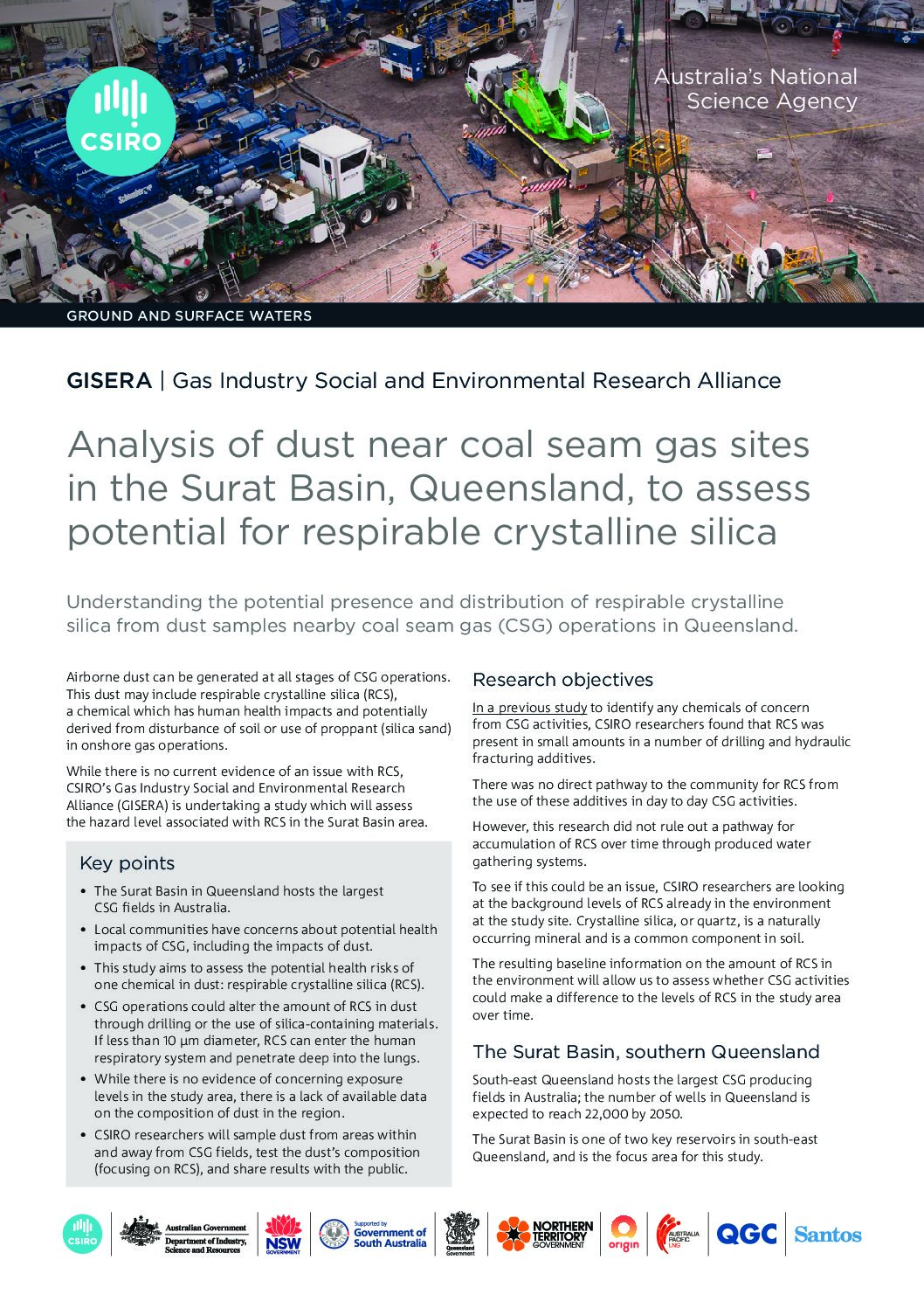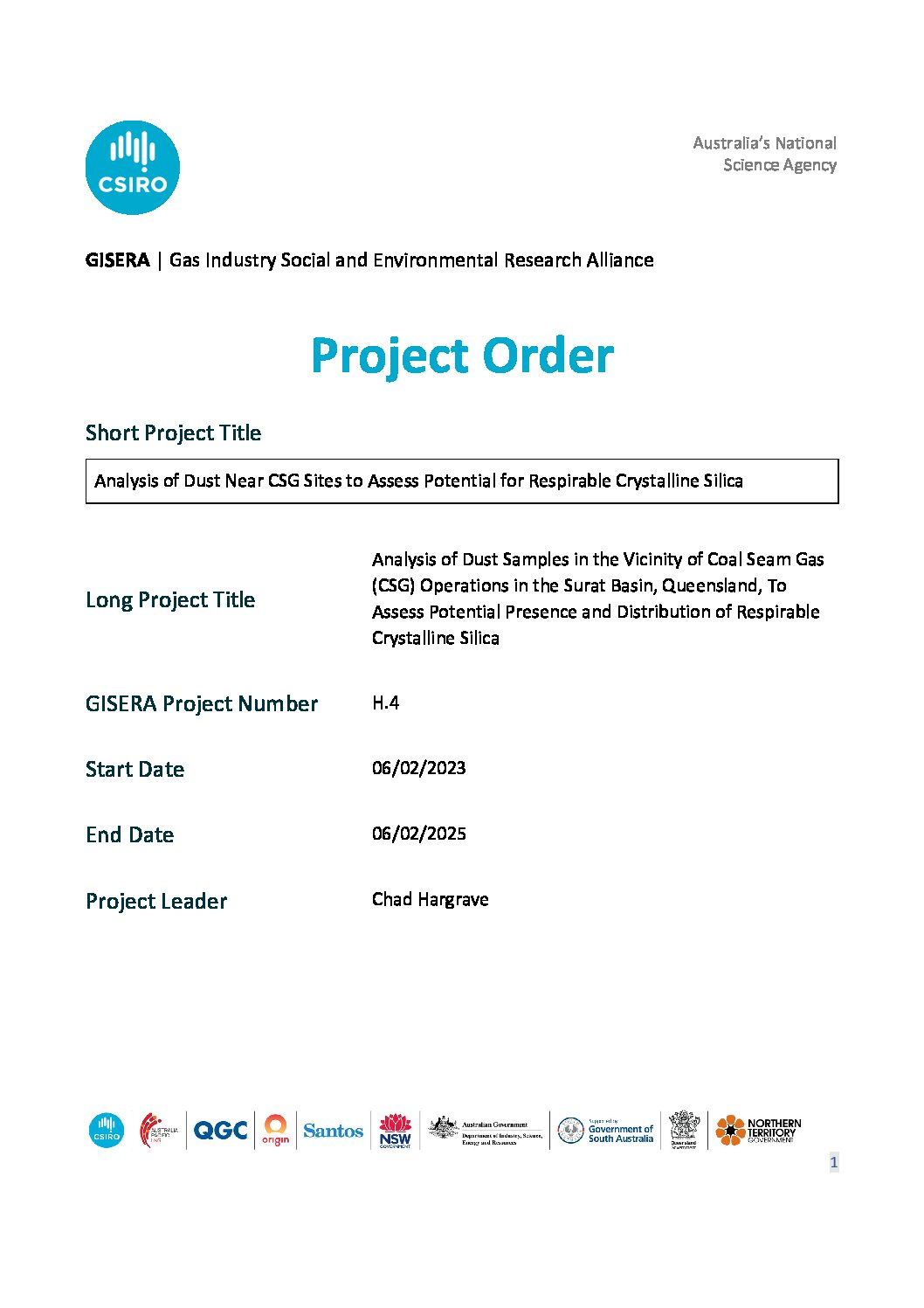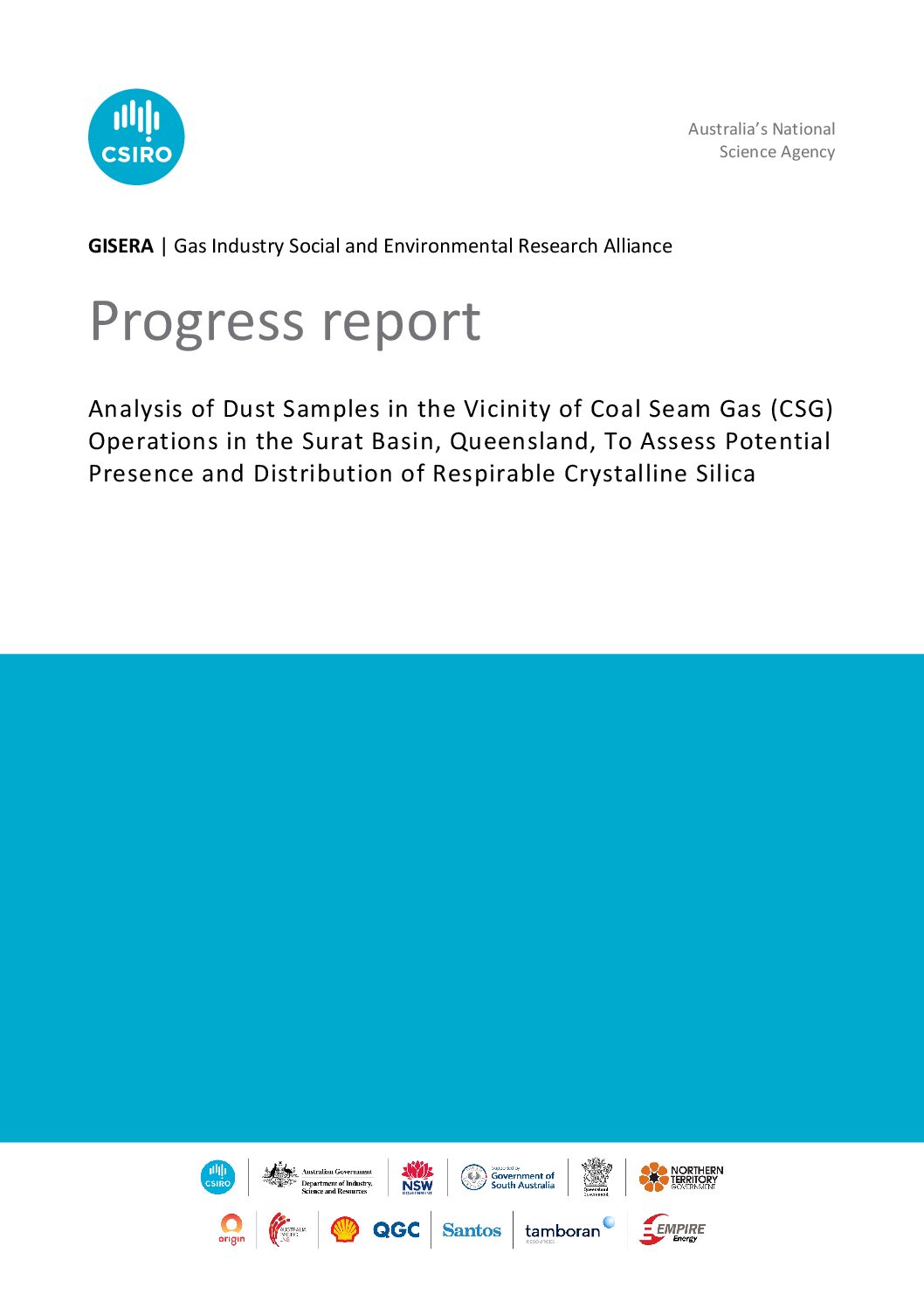Analysis of dust near CSG sites to assess potential for respirable crystalline silica
Airborne dust can be generated at all stages of coal seam gas (CSG) operations. This dust may include RCS, a chemical which has human health impacts and potentially derived from disturbance of soil or use of proppant (silica sand) in natural gas operations.
While there is no current evidence of an issue with RCS, CSIRO’s Gas Industry Social and Environmental Research Alliance (GISERA) is undertaking a study which will assess the hazard level associated with RCS in the Surat Basin area.
These results will determine the abundance of RCS and will be compared against samples collected at the same time from reference sites which are not impacted by CSG operations.
The various potential sources for c‐silica in dust related to CSG operations (construction, drilling, hydraulic fluid additives, etc.) will be evaluated for their potential to change the composition of RCS.



